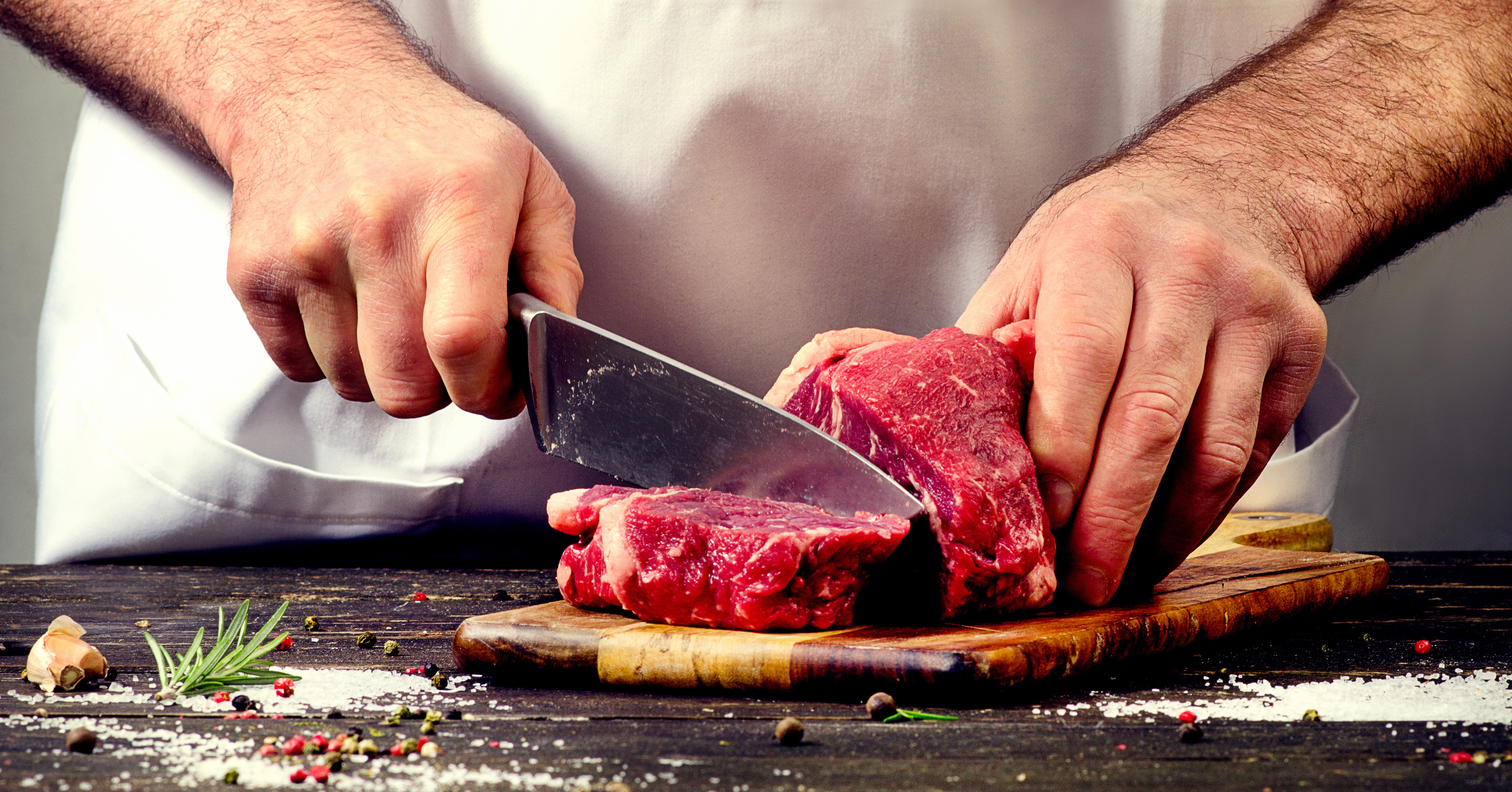Nutritional Science has been one of the more confusing and convoluted fields of applied biochemistry. The parameters of what is considered “healthy” for human consumption have changed with different research publications and clinical trials over time, constantly disputing previous results. Once believed to be absolutely essential to the human diet, carbohydrates, while still important, have now been relegated to a more auxiliary purpose. Now, the great debate has transitioned to America’s favorite type of animal product: red meat.
Whether discussing ribeye steak, hamburger, bacon, or sausage, the general consensus is that red meat, while tasty and quite delicious, does not necessarily translate to a healthy diet in the long run. Conventional and peer-reviewed research publications have often cited that while red meat is perfectly safe for consumption, cooking preparation often exacerbates the potentially carcinogenic, or cancer-causing, properties of red meat. Deep frying, roasting, and grilling/browning of red meats are different cooking methods/modalities that have often been linked to said carcinogenic properties that are harmful to human bodies.
Furthermore, when red meat – such as beef, pork, or mutton – is processed into products that include sausages and cold cuts, the nitrates, curing techniques, and high sodium content can often contribute to many physiological abnormalities such as high cholesterol, high blood pressure, and greater risks for both heart disease and certain cancers.
However, there has been recent scientific evidence among a conglomeration of five different publications that found that there is no causal link between red meat consumption and cancer. According to these sources, there is not enough concrete evidence to demonstrate that red meat is nutritionally harmful towards the human body, assuming the recommended servings are met by consumers. Red meat, of course, is rich in protein and is a good source of iron, vitamin B12, and zinc. This conclusion by the controversial research also seemingly affirms the common knowledge that nutritional science is rather convoluted and that there is no definite, “end-all-be-all” takeaway for certain diets to fit the needs of every person.
That being said, such research into the carcinogenic properties of red meat was met with swift backlash from the orthodox stance of many in the scientific community. Many opponents to the “Red meat is not that bad.” camp have stated that the conclusions met by the researchers in question are highly dismissive of present evidence. While much of the quantitative data and statistics were agreed by both sides of the debate, the contention lies in the interpretation in such said results.
Furthermore, there is also much debate in regards to the validity, consistency, and precision of the studies used in the research. This risks skewing the supposedly impartial data to any certain bias, based on usage of rhetoric and personal beliefs. Conventional interpretations of the clinical data will say that red meat poses some risk and, thus, must be avoided in order to avoid certain diseases from proliferating among the population.
Red meat is commonly consumed in many parts of the world: its palatability cannot be ignored among many cuisines around the world. However, when it comes to general wellness and illness-prevention, eat that steak, adobo, or kebab at your own discretion and to your heart’s desire; just be wary of the risks that your food may carry towards your health.
Feature Image Source: © bit24 / Adobe Stock










